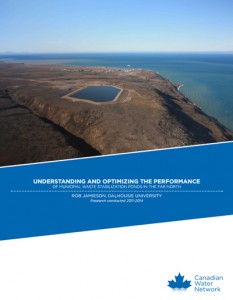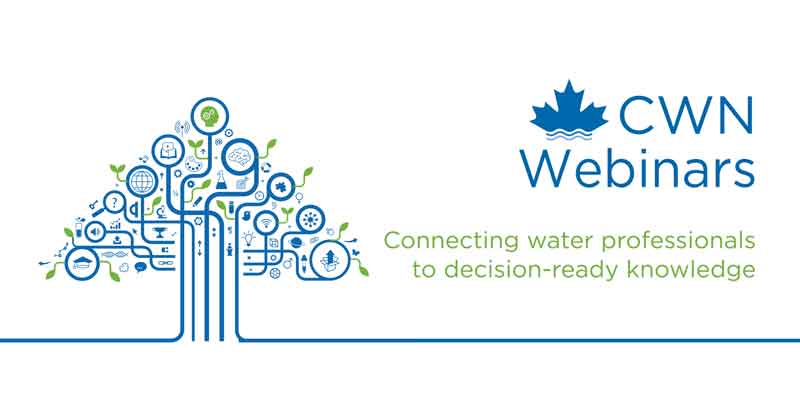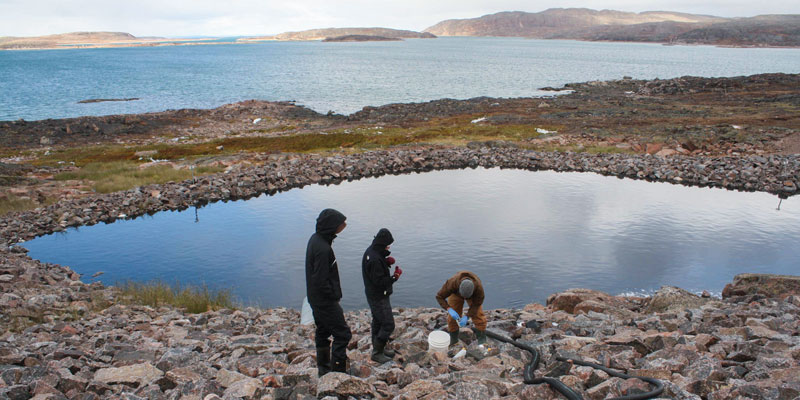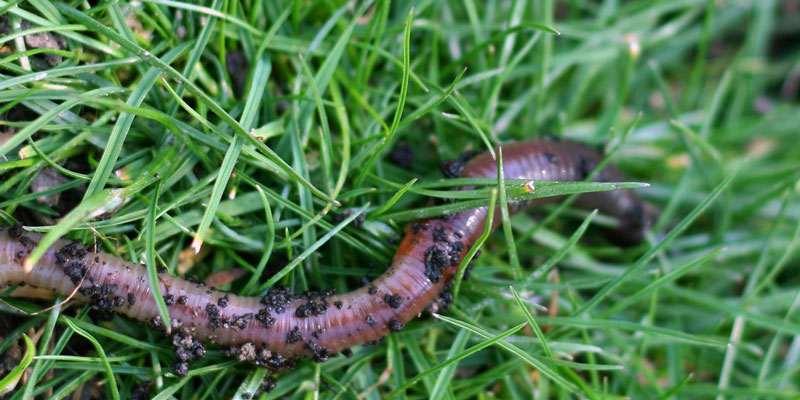Design and Optimization of Waste Stabilization Ponds for Remote, Northern Communities
Principal Investigator - Rob Jamieson, Associate Professor, Dalhousie University, 2011 - 2014
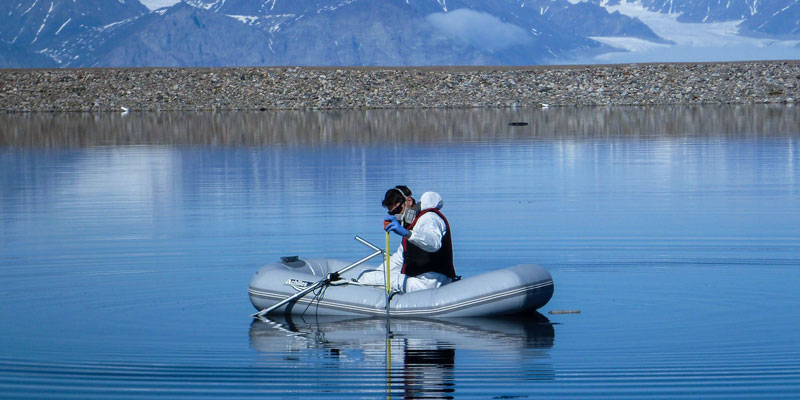
Challenge
In northern Canada, passive wastewater treatment systems, such as waste stabilization ponds (WSPs), are widely used for the management of wastewater in northern communities. However, the lack of information about the performance of WSPs in Northern Canada has created considerable uncertainty with respect to the performance and environmental risk associated with current systems. A major environmental factor influencing treatment performance within a WSP is algae growth. Further knowledge into the growth and population dynamics of algal species in northern water bodies is critical to understanding the treatment potential of such systems.
This project, led by Dr. Rob Jamieson, seeks to fulfill three main objectives: 1) Performance monitoring and microbial community assessment of WSPs in Nunavut; 2) Quantification of cold-temperature algae growth within laboratory simulated arctic WSPs, full scale WSPs, and assess the role algae and other microbial communities play in biological wastewater treatment processes; 3) Development and assessment of biofilm-based treatment systems which can be integrated into cold-climate passive WSPs.
Project
This research project will consist of both laboratory and field scale experiments. This project will be evaluating the treatment performance and assessing microbial community dynamics of full scale single and two cell WSP systems in Nunavut (three systems in total) using molecular techniques.
The project seeks to quantify cold-temperature algae growth kinetics within laboratory scale simulated arctic WSPs, and full scale field WSPs. This will be done to assess the role algae, and other microbial communities, play in biological wastewater treatment processes. This research will help uncover whether algae is directly contributing to treatment, or helping to create conditions which are positive to efficient passive wastewater treatment.
A possible cost effective treatment option is passive biofiltration treatment systems, which could be integrated into cold climate passive WSPs. Researchers will work on developing and testing this process. Bench-scale experiments in a climate-controlled laboratory environment will be conducted to investigate kinetics of biofilm formation, using different types of geosynthetic membranes.
Data collected from these experiments will allow researchers to model and assess kinetics and biofilm formation at cool temperatures, and assess the potential for enhancing WSP performance through the use of engineered biofiltration.
Outputs
Anticipated outputs include:
This research project has held several key end-user oriented meetings and workshops:
- Workshop on Water and Wastewater Systems Monitoring. This 3-day workshop was prepared for, and delivered to, the Nunavut Arctic College’s Environmental Technology Program in April, 2013.
- Go with the Flow Workshop in Coral Harbour, NU. This 3-day workshop was prepared for, and delivered to, children in the community of Coral Harbour in July, 2012. Workshop activities focused on water science.
- Government of Nunavut Wastewater Treatment Advisory Committee Meeting. Face-to-face meeting held in May, 2012 in Iqaluit. The meeting included representatives from several agencies.
- Water and Wastewater in NWT Small Communities: Research, Training and Communications Updates. This workshop was organized by Ecology North Workshop in Yellowknife which was attended by approximately 30 people. Members of the research team participated and provided a presentation summarizing research activities.
This research project has produced scholarly articles and end-user reports:
- Krkosek, W., Ragush, C., Kruhmansl, K., Jamieson, R., Lam, B., Gagnon, G. 2012. Treatment Performance of Wastewater Stabilization Ponds in Canada’s Far North. Oral presentation with refereed paper. 15th International Conference on Cold Regions Engineering. Quebec City, QC. August 19-22, 2012.
- Summary of 2012 Field Season and Experimental Plan for 2013 Field Season. Progress Report prepared for the Government of Nunavut Wastewater Treatment Advisory Committee. April, 2013.
- Summary of Wastewater and Water Related Research Activities in Coral Harbour. Report prepared for the Community of Coral Harbour
Additionally, this research has been disseminated through several presentations:
- Hayward, J., Jamieson, R., Boutilier, L., Lam, B., Krkosek, W., Gagnon, G. 2012. Hydrological characterization and treatment performance assessment of a natural tundra wetland receiving effluent from a single-cell wastewater treatment exfiltration lagoon. 15th International Conference on Cold Regions Engineering. Quebec City, QC. August 19-22, 2012.
- Krkosek, W., Ragush, C., Kruhmansl, K., Jamieson, R., Lam, B., Gagnon, G. 2012. Treatment Performance of Wastewater Stabilization Ponds in Canada’s Far North.15th International Conference on Cold Regions Engineering. Quebec City, QC. August 19-22, 2012.
- Schmidt, J., Krkosek, W., Jamieson, R., Gagnon, G. 2013. Wastewater Treatment System Performance and Environmental Impact Analysis in Kugaaruk and Grise Fiord, Nunavut. NTWWA Annual Conference, Yellowknife, NT. November 24-25, 2012.
- Hayward, J., Jamieson, R., Lam, B. Natural Wetland Treatment Performance in Coral Harbour, NU. NTWWA Annual Conference , Yellowknife, NT, November 24-25, 2012.
Outcomes
Anticipated outcomes include:
- Supporting Northern territories and provinces in decisions related to upgrading wastewater treatment systems to achieve compliance with new effluent discharge regulations.
- Increased knowledge surrounding the performance and potential environmental risks of waste stabilization ponds in Canada.
- Potential changes in practice related to compliance with effluent discharge regulations.
- Assisting in the development of highly qualified personnel, including three PhD students and three Masters students.


